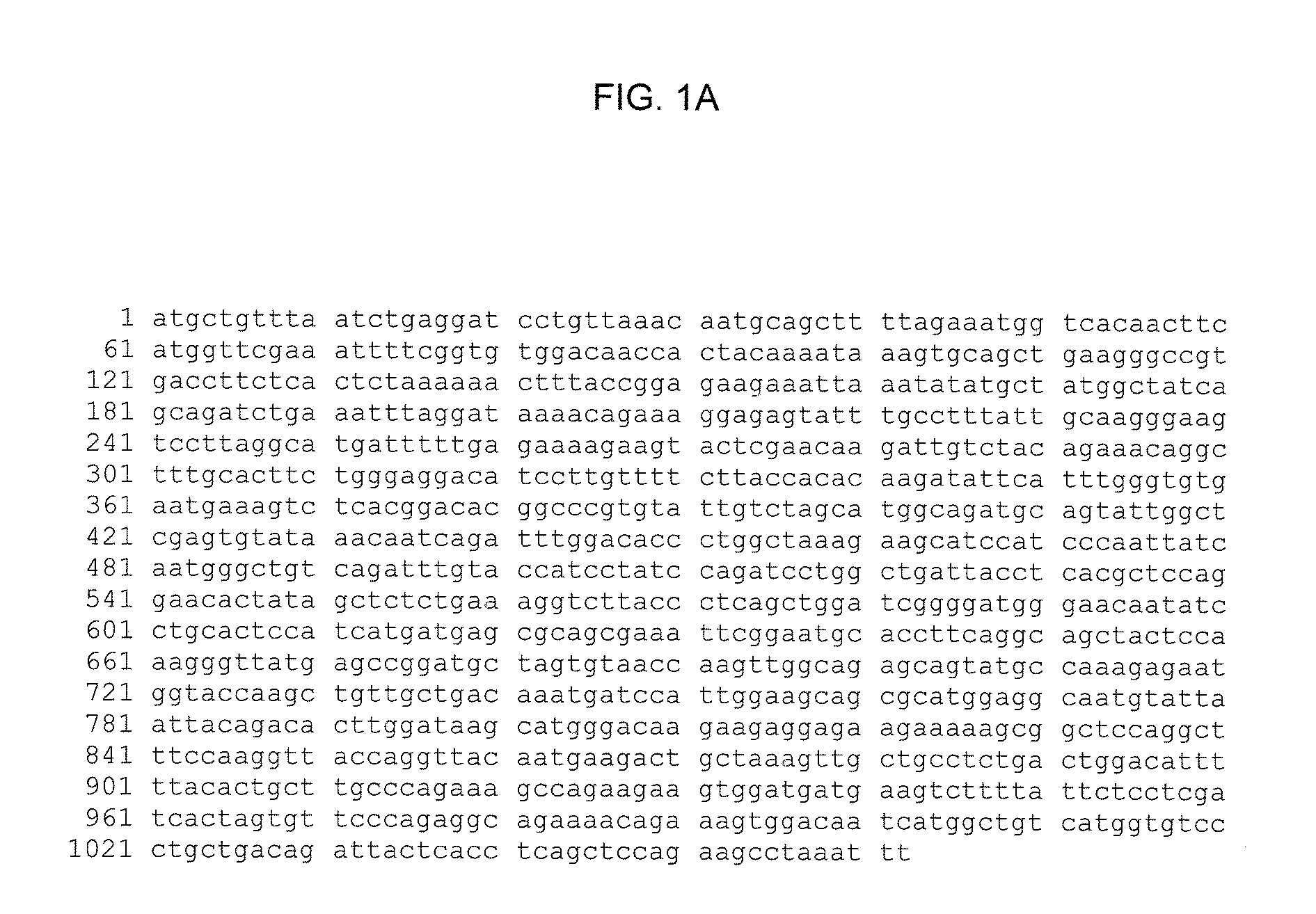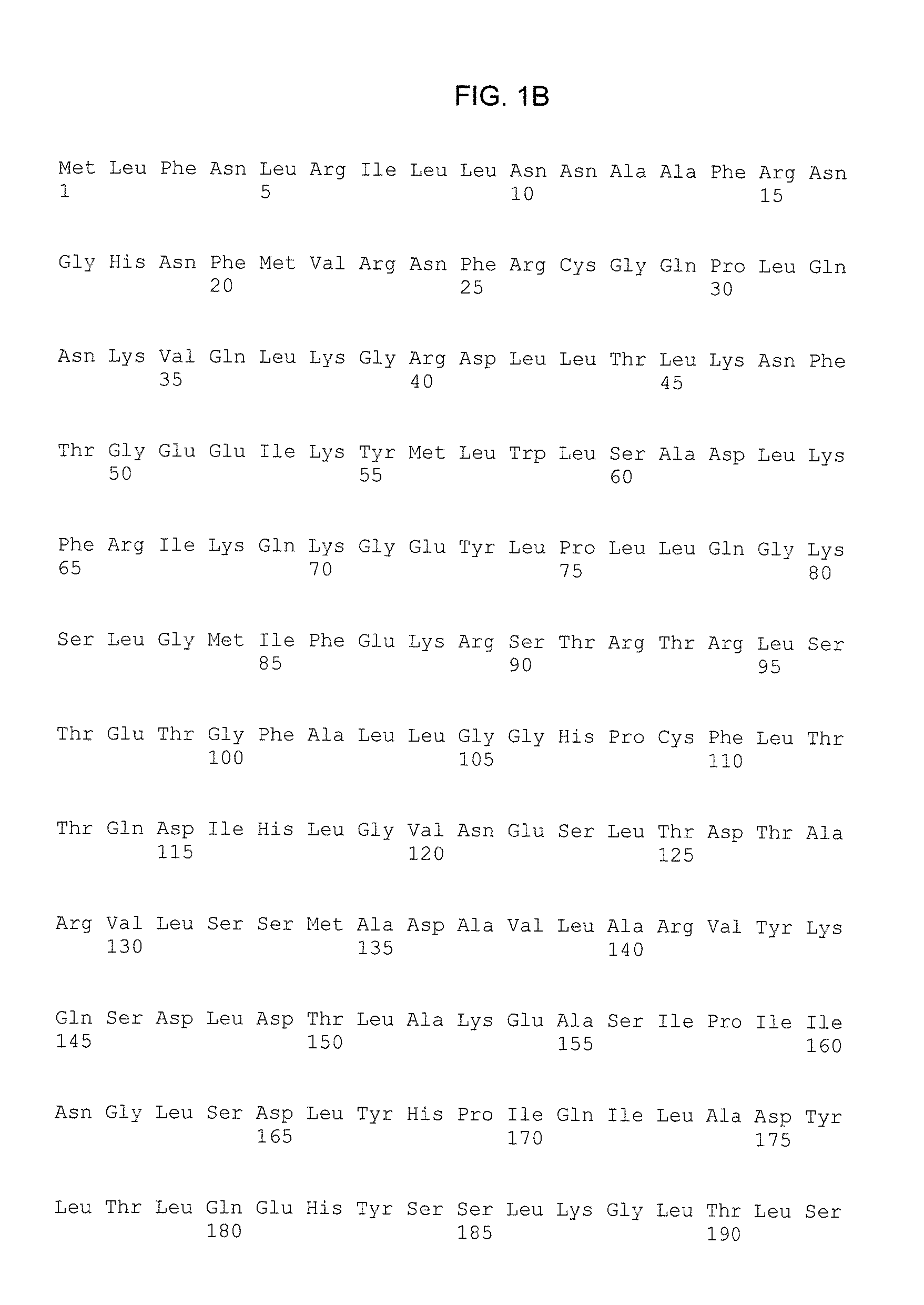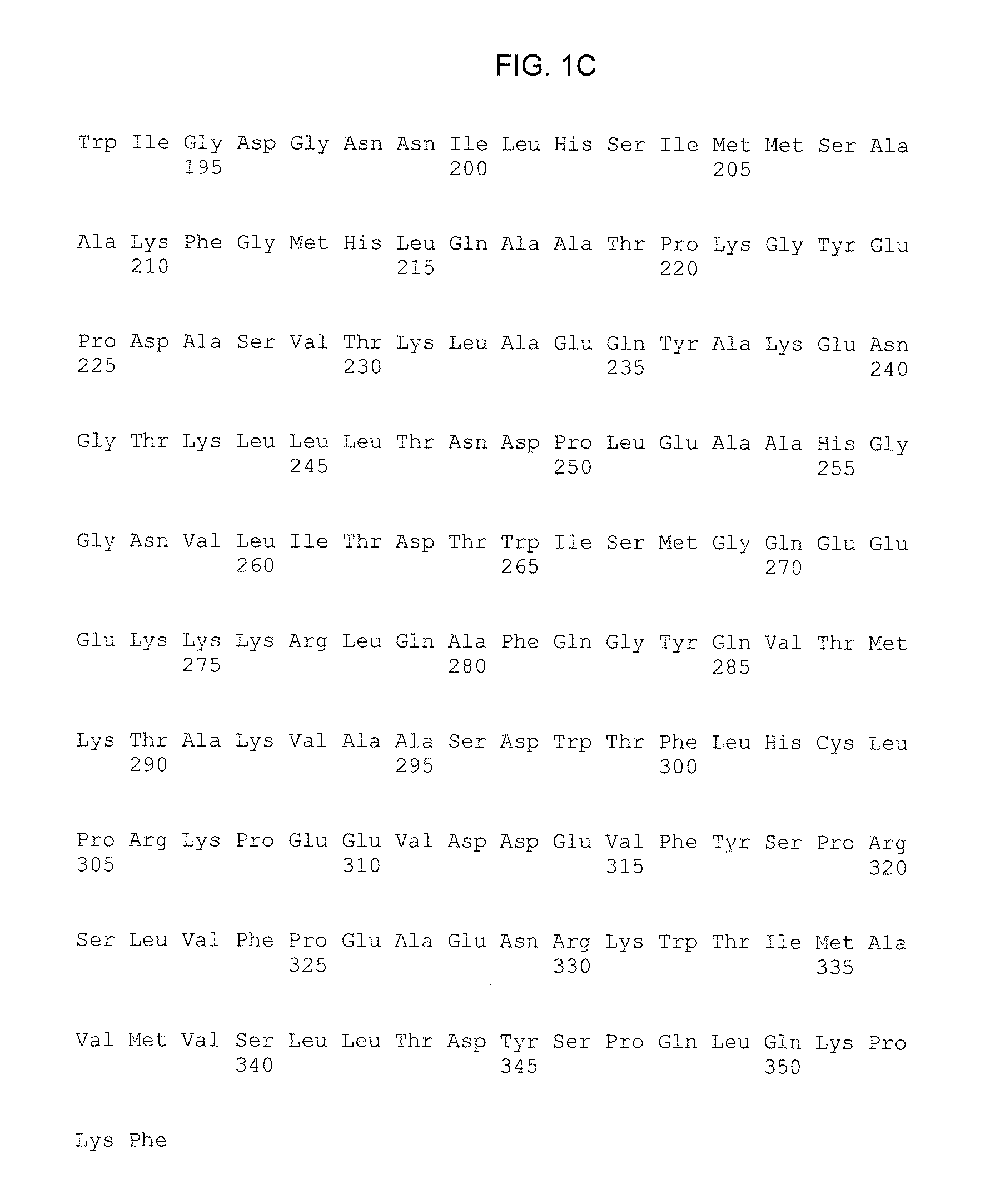Compositions useful in treatment of ornithine transcarbamylase (OTC) deficiency
a technology of ornithine transcarbamylase and composition, applied in the direction of transferases, dsdna viruses, metabolic disorders, etc., can solve the problems of coma and death, untreated, lethal, etc., to prevent and/or treat fibrosis, prevent and/or treat hepatocellular carcinoma
- Summary
- Abstract
- Description
- Claims
- Application Information
AI Technical Summary
Benefits of technology
Problems solved by technology
Method used
Image
Examples
example 1
scAAV Vectors Containing hOTC
[0088]pAAVsc.TBG.hOTCwt and pAAVsc.TBG.hOTCco-LW4 were constructed by replacing the mOTC coding sequencing with wild-type (WT) hOTC (hOTCwt) or hOTCcoLW cDNA, respectively, in a plasmid derived from the previously described pAAVsc.TBG.mOTC1.3 with the intron disrupted [Moscioni D, et al, “Long-term correction of ammonia metabolism and prolonged survival in ornithine transcarbamylase-deficient mice following liver-directed treatment with adeno-associated viral vectors”, Mol Ther. 2006; 14:25-33; Cunningham S C, et al, “AAV2 / 8-mediated correction of OTC deficiency is robust in adult but not neonatal Spf(ash) mice”, Mol Ther. 2009; 17:1340-1346; Wang L, et al., “Sustained correction of OTC deficiency in spfash mice using optimized self-complementary AAV2 / 8 vectors”, Gene Ther. 2012 April; 19(4):404-10, Epub 2011 Aug. 18].
[0089]The scAAV2 / 8.TBG.hOTCco-LW4 contains an AAV2 3′ ITR and a 5′ ITR with a deletion in the D-sequence and trs (terminal resolution site...
example 2
Production of scAAV Vectors Having Codon Optimized Sequences
[0097]A. scAAV8.TBG.hOTC-co
[0098]Plasmids containing a codon optimized hOTC sequence of SEQ ID NO: 3, 4, 5, 9 or 10, respectively, are cloned as described in Example 1 by replacing the mOTC coding sequencing with hOTCco in a plasmid derived from the previously described pAAVsc.TBG.mOTC1.3 with the intron. The resulting plasmid pAAVsc.TBG.hOTCco is cloned into an AAV8 capsid [Gao et al, PNAS USA, 2002, 99:11854-11859] using conventional techniques.
[0099]B. scAAVrh10.TBG.hOTC-co
[0100]Plasmids containing a codon optimized hOTC sequence of SEQ ID NO: 3, 4, 5, 9 or 10, respectively, are cloned as described in Example 1 by replacing the mOTC coding sequencing with hOTCco in a plasmid derived from the previously described pAAVsc.TBG.mOTC1.3 with the intron. The resulting plasmids pAAVsc.TBG.hOTCco are cloned into a AAVrh10 capsid [Gao et al, PNAS USA, 2002, 99:11854-11859] using conventional techniques.
example 3
Production of ssAAV Vectors Having Codon Optimized Sequences
[0101]ssAAV2 / 8.LSP1.hOTC-co
[0102]Plasmids containing the codon optimized hOTCco sequences are cloned as described by replacing the mOTC coding sequencing of the pLSP1mOTC plasmid [Cunningham et al, Mol Ther, 2009, 17: 1340-1346] with the corresponding cDNA sequence of SEQ ID NO:3, 4, 5, 9 or 10. The resulting plasmids pAAVsc.LSPLhOTCco are cloned into AAV8 capsids to form the corresponding ssAAV2 / 8.LSP1.hOTC-co vectors using techniques described in Example 1.
[0103]B. ssAAV2 / rh10.LSP1.hOTC-co
[0104]Plasmids containing the codon optimized hOTCco sequences are cloned as described by replacing the mOTC coding sequencing of the pLSP1mOTC plasmid [Cunningham et al, Mol Ther, 2009, 17: 1340-1346] with the corresponding cDNA sequence of SEQ ID NO:3, 4, 5, 9 or 10. The resulting plasmids pAAVsc.LSPLhOTCco are cloned into AAV8 capsids to form the corresponding ssAAV2 / 8.LSP1.hOTC-co vectors using techniques described in Example 1.
[0105...
PUM
| Property | Measurement | Unit |
|---|---|---|
| body weight | aaaaa | aaaaa |
| pH | aaaaa | aaaaa |
| molecular weight | aaaaa | aaaaa |
Abstract
Description
Claims
Application Information
 Login to View More
Login to View More - R&D
- Intellectual Property
- Life Sciences
- Materials
- Tech Scout
- Unparalleled Data Quality
- Higher Quality Content
- 60% Fewer Hallucinations
Browse by: Latest US Patents, China's latest patents, Technical Efficacy Thesaurus, Application Domain, Technology Topic, Popular Technical Reports.
© 2025 PatSnap. All rights reserved.Legal|Privacy policy|Modern Slavery Act Transparency Statement|Sitemap|About US| Contact US: help@patsnap.com



